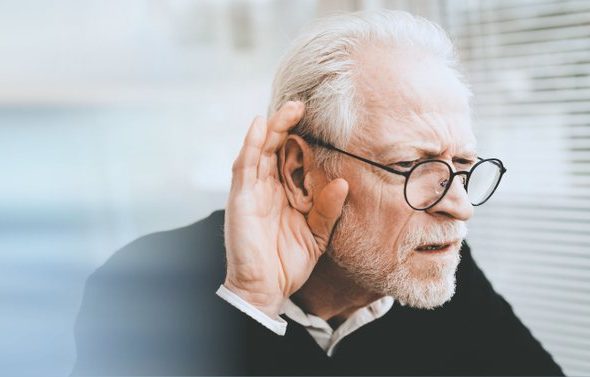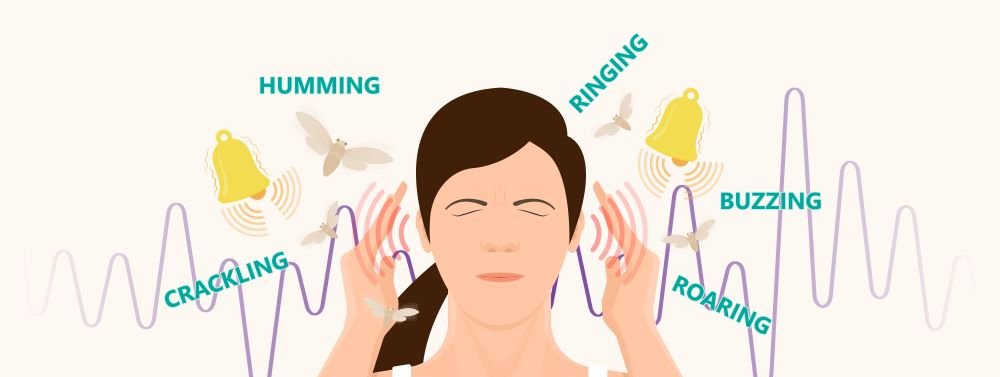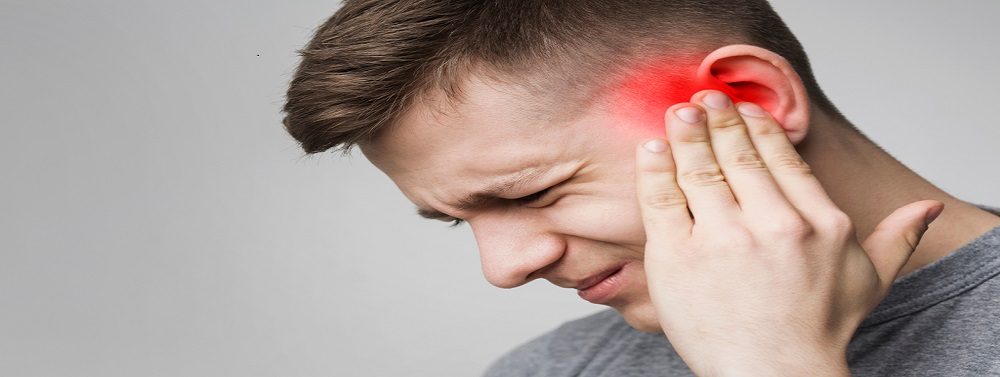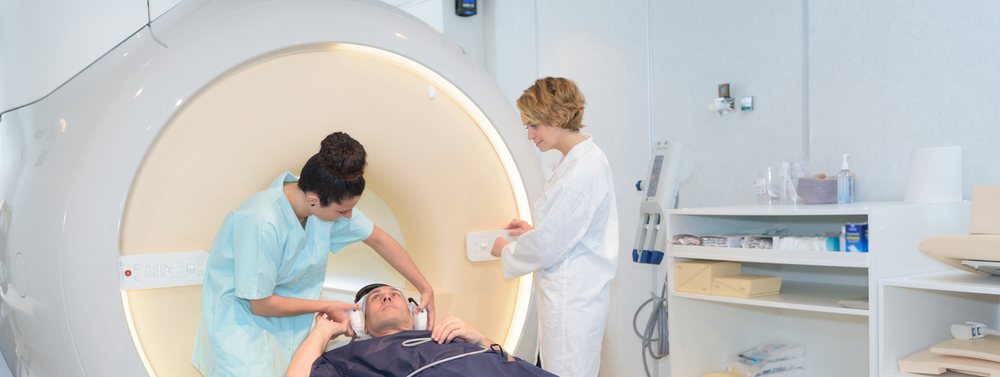Car accidents and resulting trauma and injuries send nearly three million Americans to be treated in emergency rooms each year. While some car accident injuries are emergent and require a trip to the emergency room, others will linger and turn chronic and need ongoing treatment to successfully treat your injuries. You may experience hearing loss as a result of trauma sustained in a car accident.
If you need treatment for car accident injuries beyond the emergent stage, it is beneficial to seek a multi-disciplinary office that has multiple years of experience treating car accident injuries. AICA Orthopedics at Tucker is a great place to receive expert care from knowledgeable doctors and staff for a comprehensive treatment plan.
What Is Hearing Loss?
 Hearing loss can be defined as a total or partial inability to process sounds. It can be caused by physical trauma to the head or neck, genetic defects, or even sound trauma. There are an estimated 20 million people in the United States with reported hearing loss. While most people associate hearing loss with deafness, there are actually three categories of hearing loss, which can manifest in different ways.
Hearing loss can be defined as a total or partial inability to process sounds. It can be caused by physical trauma to the head or neck, genetic defects, or even sound trauma. There are an estimated 20 million people in the United States with reported hearing loss. While most people associate hearing loss with deafness, there are actually three categories of hearing loss, which can manifest in different ways.
Sensorineural hearing loss occurs when damage has been done to the inner ear or the nerve itself and is the most common form of hearing loss. It can be caused by aging, exposure to loud sounds, injuries, or inherited conditions and cannot be treated medically.
Hearing loss can also be considered conductive when the problem involves the outer or middle ear, and waves cannot be carried through to the inner ear. Conductive hearing loss is usually due to a blockage of some sort and can often be reversed with proper treatment. It is also possible for a person to suffer from mixed hearing loss, where both sensorineural and conductive forms exist at once. The type of hearing loss you have will be an important key to treating the condition down the line.
Anatomy of the Ear
Though it is small, the ear is an extremely complex part of the human body, containing sense organs that facilitate not only hearing, but also postural equilibrium and coordination between head and eye movements. Even minor damage to any part of the ear can cause serious health concerns, including hearing loss and problems with the entire vestibular system. The ear consists of 3 different sections, which are related to different types of hearing loss.
The external or outer ear
- Pinna or auricle- the outside part of the ear, what you see on the outside of your head.
- External auditory canal- connects the outer ear to the inside or middle ear.
- Tympanic membrane- the eardrum divides the external ear from the middle ear.
Middle ear (tympanic cavity)
The middle ear houses the three small bones that are responsible for transmitting sound waves to the inner ear.
- Malleus
- Incus
- Stapes
- Eustachian tube- canal linking the middle ear with the back of the nose. Responsible for equalizing pressure in the middle ear, damage to this part of the ear can cause disruption of sound waves transferring to the inner ear. The eustachian tube is lined with mucous, just like the inside of the nose and throat.
Inner ear
- Cochlea- spiral in shape like a snail’s shell, the cochlea contains the nerves for hearing.
- Vestibule- receptors for balance.
- Semicircular canals- receptors for balance.
What are the causes of hearing loss?
 Hearing loss can have a few causes; one of the most common types is damage to the inner ear. The damage that occurs is usually wear and tear on the hairs of the inner ear or nerve cells in the cochlea. This wear and tear prevent sound from being transmitted to the brain. Damage to the inner ear can occur due to genetics, exposure to loud noises, physical trauma, or aging.
Hearing loss can have a few causes; one of the most common types is damage to the inner ear. The damage that occurs is usually wear and tear on the hairs of the inner ear or nerve cells in the cochlea. This wear and tear prevent sound from being transmitted to the brain. Damage to the inner ear can occur due to genetics, exposure to loud noises, physical trauma, or aging.
Another cause of hearing loss is a ruptured eardrum. This is typically caused by a blast of noise, sudden changes in pressure, poking your eardrum with an object, or even infection.
Some other minor causes of hearing loss are a gradual buildup of earwax that physically blocks sound from entering your ear or an ear infection. Ear infections produce a buildup of pus and infected tissue in the inner or outer ear causing sounds from not being transmitted.
What are some risk factors leading to hearing loss?
 Certain risk factors for hearing loss include aging, loud noises, occupational noises, recreational noises, heredity, and illnesses. However, even someone with no known risk factors can suffer from hearing loss as a result of a traumatic event like a car accident.
Certain risk factors for hearing loss include aging, loud noises, occupational noises, recreational noises, heredity, and illnesses. However, even someone with no known risk factors can suffer from hearing loss as a result of a traumatic event like a car accident.
Common Symptoms of Hearing Loss
- ringing in ears
- difficult distinguishing voices
- difficulty understanding word
- muffled hearing
- painful ears
- bleeding from the ear
- dizziness and difficulty standing
- pressure in the ears usually associated with this comfort
How can a car accident cause hearing loss?
You might not think that hearing loss can be caused by a car accident. Unfortunately, your ears and hearing can be damaged in several different ways during a wreck. When a car wreck occurs, a tremendous amount of force is exerted upon the body, even if you’re wearing a seatbelt. During the period following an accident, if you continue to experience pain, discomfort, or difficulty moving, the expert team of orthopedists at AICA Orthopedics Tucker will assess and treat your injuries.
Explosive Sound Injury
The moment of impact in a car wreck is often accompanied by explosive sounds. The sound comes from the car physically hitting another car but can also occur when an airbag deploys. While there isn’t evidence the noise from an airbag can cause permanent damage, you may experience ringing in your ears or a temporary full feeling. This could change as car manufacturers are adding more airbags to cars to help improve safety. This includes side airbags that are closer to the side of your head. Now, if another type of explosion or louder sounds occur during a wreck, there is a possibility of more permanent hearing loss.
Whiplash
In addition to sound injury, whiplash can potentially cause a loss of hearing. Whiplash occurs when your body comes to a sudden stop when traveling at high speeds. This sudden stop jerks your head forward and then back, resulting in pain, nerve and muscle damage, dizziness, and discomfort. Whiplash can damage the nerves and muscles of the neck that are essential to supporting the ear and helping the inner ear function.
If your hearing loss is caused by strain on nerves or muscles in the neck, AICA Orthopedics Tucker has experienced orthopedic physicians, neurologists, and chiropractors that can assess and treat whiplash to correct the hearing loss.
Fractures
Fractures are not uncommon injuries in car accidents. The most common fractures in car accidents are spinal, arm, and legs. Head trauma resulting in fractures of the skull can also occur if your head strikes a window or steering wheel. Any fracture to the skull may result in small pieces of the skull dislodging into the inner ear and tearing or puncturing important nerves, muscles, and other structures. These injuries could cause permanent or temporary hearing loss.
Traumatic Brain Injury
Finally, if you sustain a traumatic brain injury, your hearing can be damaged as a result. Your brain is ultimately responsible for nerve function and your body functioning at a typical baseline, and traumatic brain injuries can affect that. A common symptom of TBI-related hearing loss is tinnitus which is specifically a ringing or buzzing noise in the ear. A concussion sustained in a car wreck can cause disorientation, slow thinking, and even trouble processing noises and information around you. AICA Orthopedics have experienced neurologists who specialize in concussions and treat them daily.
Types of Ear Injuries Seen in Car Accidents
- vertigo
- deafness
- tinnitus
- ruptured eardrum
- damage the inner ear tissues and hair cells
- damage the small bones of the ear in the middle ear
- description of blood flow to the cochlea
What should you do if you suspect an ear-related injury?
 If you are experiencing any injury as a result of a car wreck, you need to have it evaluated by a doctor immediately. Please call AICA orthopedics at Tucker if you’ve been in a car accident, as our experienced car wreck specialty doctors can give you a full head-to-toe evaluation for any injuries.
If you are experiencing any injury as a result of a car wreck, you need to have it evaluated by a doctor immediately. Please call AICA orthopedics at Tucker if you’ve been in a car accident, as our experienced car wreck specialty doctors can give you a full head-to-toe evaluation for any injuries.
Is it important to have a medical evaluation?
It is common for people not to mention hearing loss after a car wreck, both in paperwork and when having a medical evaluation. You might think the hearing loss is temporary or not as important as a potentially more painful injury.
Whether it was caused by airbag deployment, head damage, or whiplash, getting an evaluation of your injuries is important, especially if you’re filing an insurance claim with insurance. This is true regardless of who is at fault in the accident. Documentation of these injuries can also be important in any legal cases or insurance claims, so going in early can help you have proof of even minor issues.
Specialty Physicians
After an initial evaluation, you might be referred to an ear, nose, and throat specialist, as they are highly experienced in treating ear and hearing-related conditions. You may also be referred to an audiologist, a doctor specializing in hearing. In order to diagnose hearing loss and what caused it, you will need to see an ear, nose, and throat doctor or neurologist. AICA Orthopedics Tucker has experienced neurologists on staff that can assist in diagnosing your injuries.
Diagnostic Procedures
Further testing can include:
- MRI – assess any internal damage to the inner ear
- X-rays to determine if any bones are fractured
- Hearing assessment
While we don’t treat hearing injuries specifically, AICA Orthopedics has an expert care team ready to see you through your healing journey from diagnosis, treatment, physical therapy, and even chiropractic care for other orthopedic-related injuries.
What are my treatment options for hearing loss?
Most traumatic hearing loss is not reversible, but there are adaptive tools that you can use in your everyday life. These tools include hearing aids and cochlear implants. Depending on the cause of your hearing loss, some procedures can be completed to help restore your hearing. Surgery to repair holes in your eardrum or more experimental surgery to repair the bones of the inner ear can aid in the restoration of hearing. If your hearing loss is caused by an infection or buildup of ear wax, a clean-out of the ear or antibiotics can clear those obstructions.
Do you have legal options after a car wreck?
When filing a legal claim for damages sustained in a car wreck, it’s important to have adequate documentation. The doctors at AICA orthopedics and Tucker are experienced car wreck doctors. Oftentimes you will hear people downplay the fact that hearing loss can have on your life, especially if it isn’t a complete hearing loss; however, injuries sustained in a car accident that results in hearing loss tend to be fairly severe, and adequate compensation and treatment are needed.
Contact AICA Orthopedic Tucker Today!
It’s important if you’ve been in a car accident to get checked out right away rather than waiting to see if any injuries develop. Sometimes by waiting, injuries can actually worsen and become harder to treat.
If you are experiencing these problems or are in need of other services after a car accident, AICA Orthopedics offers a range of specialists and treatment plans. Whether you are seeking whiplash treatment, a full evaluation after an accident, or help with jaw and ear pain, AICA Orthopedics is prepared to help. We specialize in car accident victims, building personalized plans with a multi-disciplinary approach to recovery.
If you are the victim of a car wreck, AICA can perform state-of-the-art imaging to determine the extent of your injuries. Following diagnosis and treatment, our orthopedic doctors can collaborate with our physical therapists and chiropractors to develop a treatment plan. Physical therapy can improve strength and flexibility, and a visit with a chiropractor can help alleviate pain while you are healing. Early medical attention leads to faster healing times, so please contact AICA Orthopedic today!
